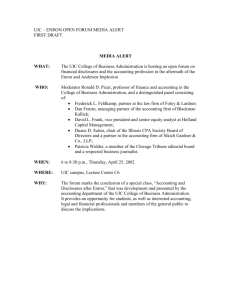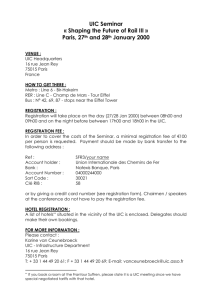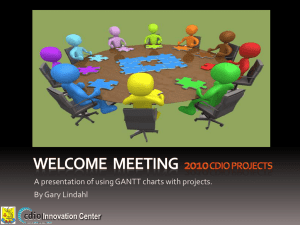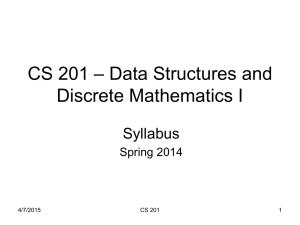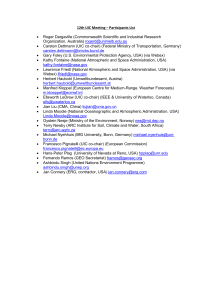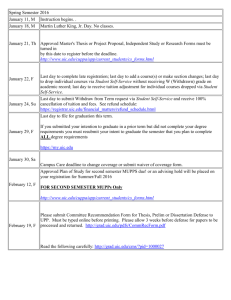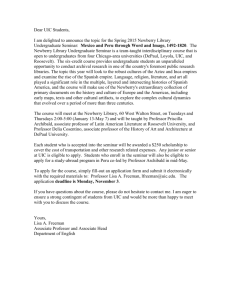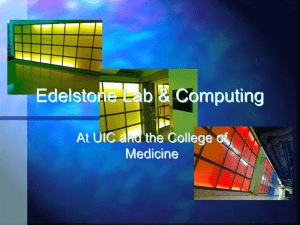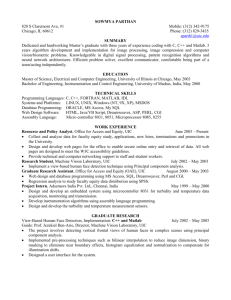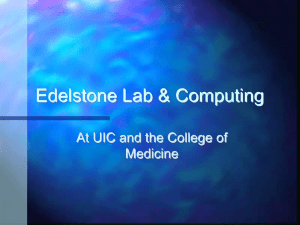Document
advertisement
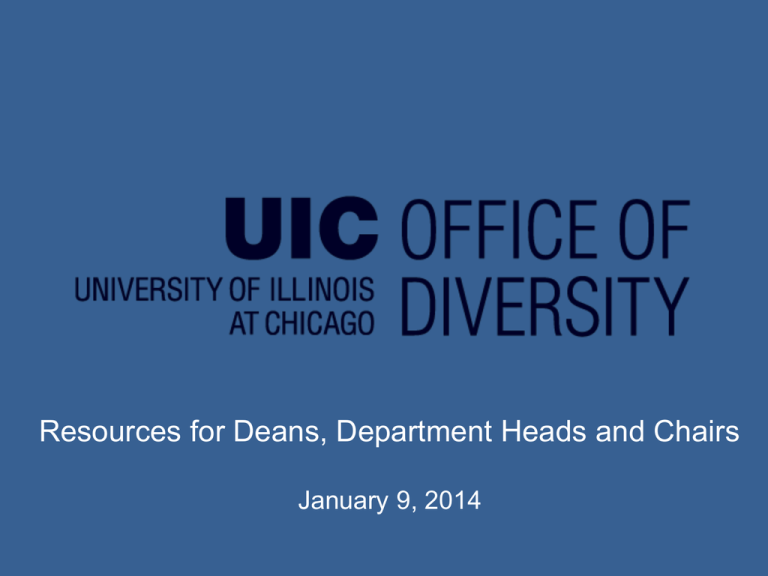
Resources for Deans, Department Heads and Chairs January 9, 2014 Objectives for today • Gain clear understanding of the Office of Diversity as a campus resource • Engage in dialogue-based activities to: enhance awareness of diversity related resources available to faculty, staff, and students on campus experience pedagogical techniques based on valuing process & content, and active & engaged learning Campus Role Provide support and consultation related to: • Achievement of campus goals in A Mosaic for UIC Transformation (available at Diversity.UIC.edu) • Development of curriculum and co-curricular programs Resources • UIC Dialogue Initiative • Chancellor’s Committees on the status of Asian Americans Blacks Latinos Lesbian, Gay, Bisexual, Transgender, Queer People and Allies Persons with Disabilities Women • Other committees: Diversity Committee Chairpersons (DCC) Provost’s Diversity Advisory Committee (DAC) • Centers for Cultural Understanding and Social Change Six unique centers with distinct histories, missions and locations African-American Cultural Center Asian American Resource and Cutural Center Disability Resource Center Gender and Sexuality Center Rafael Cintrón Ortiz Latino Cultural Center Women's Leadership and Resource Center Collaborative Projects Opportunities for Partnership • Cultural and educational programs that expand understanding of issues and assets across communities. • Collaborations using art-based processes, storytelling and civic dialogue. • Sites for student internships and applied research. • Engagement with the city through community partnerships. Opportunities for Partnership • Classroom presentations on cultural identities and various social issues. • Public programs included in syllabi to advance class discussions. • Opportunities for engagement with the city through the Centers’ longstanding, reciprocal community partnerships. Services • Providing Accommodations • Deaf/Hard of Hearing Resources • Test Proctoring • U.S. Disability Policies Services • Advocacy • Academic accommodations and criminal, university administrative and civil options • Assistance with orders of protection or no contact orders • Title IX UIC Dialogue Initiative • Partnership between Academic Affairs and Student Affairs • Dialogue education: Face-to-face learning experience over a sustained period of time, in which participants from various social identity groups (gender, race, etc.) explore difference and find ways to work collaboratively toward a more equitable society (Zuñiga, Nagda, & Sevig, 2002; Zuñiga, Nagda, Chesler, & Cytron-Walker, 2007) • Offerings as credit-bearing courses, co-curricular programs, and workshops for students, staff, and faculty • Outcomes Core Features of the Dialogic Approach 1. Pedagogical techniques heavily based on: Interactive and experiential exercises Active and engaged learning 2. Equally valuing process and content in curricular/cocurricular design 3. Expertise in group facilitation and group dynamics 4. Comfort in working through conflict and sensitive topics 5. Promote development of identity awareness Who is at your table? Introduce yourself with Name Department Finish this sentence – “If you knew me outside of UIC, you would know that... Scenario Dialogue Reflection PRESENTERS Charu Thakral – “Diversity and UIC Dialogues Initiative” Megan Carney – “Centers for Cultural Understanding and Social Change” Rebecca Gordon – “Campus Advocacy Network” Rosa Cabrera – “Reflection on Dialogic Exercise” DISCUSSION FACILITATORS • • • • • • • • Lori Baptista, African American Cultural Center Rosa Cabrera, Rafael Cintron Ortiz Latino Cultural Center Megan Carney, Gender and Sexuality Center Rebecca Gordon, Women’s Leadership and Resource Center Kristy Kambanis, Office of Diversity Charu Thakral, Office of Diversity Philip Vasquez, Office of Student Development Services Steve Whitley, Office of the Vice Provost for Planning and Programs We look forward to working with you.
